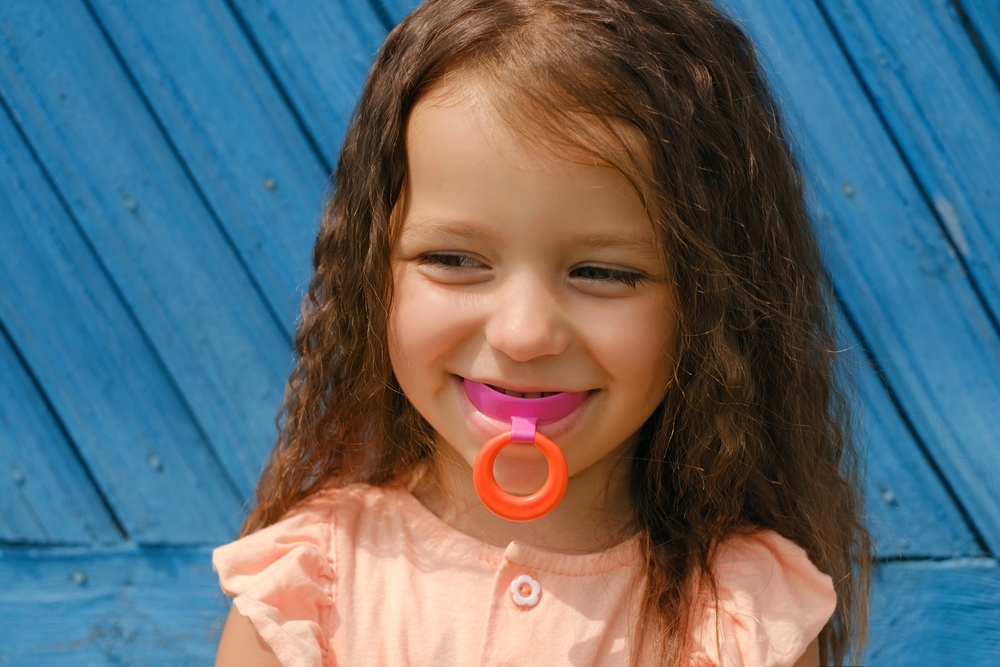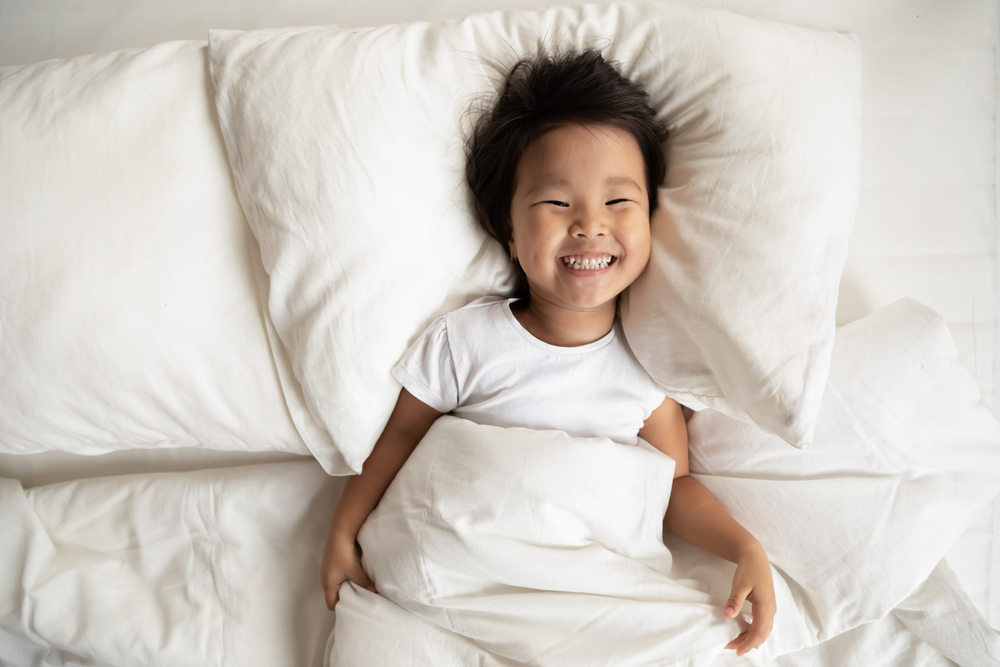
You made it through a few years of teething and things are smooth sailing until you hear a squeaking, grating noise and realize your child is grinding their teeth. Isn’t teeth grinding only for stressed out adults? No, believe it or not, teeth grinding and clenching can strike at any age. In fact, according to the Children’s Hospital of Philadelphia, an estimated 3 out of 10 kids grind their teeth before the age of 5.
Though the habit is common, is it okay? The team at Innovative Pediatric Dentistry in Naperville will be tackling the subject in this post.
What is Bruxism?
Repetitive teeth grinding, gnashing and/or clenching is known as bruxism. Awake bruxism happens when a child is awake, while sleep bruxism occurs when your child is sleeping. Sleep bruxism is harder to identify than awake bruxism. This is because most kids don’t know they’re grinding their teeth in sleep, so it might not be until they experience symptoms that you realize anything is going on.
Why Do Kids Grind Their Teeth?
As for why kids grind their teeth, it depends on your child’s age. In very young kids, teeth grinding is normal and not usually a cause for concern. Toddlers may grind their teeth to combat the discomfort of teething or as a way to explore their mouth. By around age 6, most little ones will stop grinding their teeth on their own.
Awake bruxism, even in children who are school-aged or older, might not warrant any treatment or cause any issues, though it can be a sign that your child is stressed or anxious.
But what about sleep bruxism? Why do kids grind their teeth at night? It’s not always possible to pinpoint an exact cause. It seems to run in families, indicating a potential genetic component. Other risk factors for sleep bruxism in kids include:
- Stress and anxiety
- Misaligned teeth
- Other health conditions, including ADHD and migraines
- Certain medications
- Exposure to second-hand smoke
- Sleep disturbances, such as sleep apnea, snoring and night terrors
- Allergies (a study found evidence suggesting children with allergies are more likely to grind their teeth at night, perhaps as a way to cope with a middle ear disturbance from congestion)
Should I Be Concerned About My Child’s Teeth Grinding?
As we said, teeth grinding in young kids isn’t usually a concern. Unless it’s resulting in other issues, there’s a good chance they’ll grow out of it. If teeth grinding is habitual and your child doesn’t stop around age 6, or they’re experiencing complications from it, then you’ll want to talk with your Naperville pediatric dentist about it.
Chronic sleep bruxism in children can be an indication that something else is going on that will require treatment. For example, there might be an issue with the development of your child’s teeth, jaw and facial structure that restricts the airway or is causing misaligned teeth that, in turn, leads to grinding and clenching.
Signs of Bruxism in Kids
Awake bruxism is easy to spot. You’ll hear and see your child clenching and grinding their teeth. They may do it unconsciously, such as when they’re concentrating really hard or feeling frustrated, or they could be aware of it.
Sleep bruxism in children is harder to pinpoint. Signs that your child is grinding their teeth at night include:
- Grinding Noises – You or someone else in your household might hear squeaking, grinding, gnashing or chewing noises while your child is sleeping. If you suspect your kiddo is grinding their teeth, but you’re not sure, you can check on them in the middle of the night or use a baby monitor to confirm it.
- Jaw Pain – If your child has a sore jaw in the morning, they’re likely grinding their teeth. The pressure from grinding and clenching puts strain on the jaw and temporomandibular joints (TMJ), potentially leading to pain and clicking and popping noises.
- Teeth Damage – Aggressive or chronic bruxism can damage the teeth and gums. In extreme cases, you may notice that some of your child’s teeth are wearing down. They might also have receding gums, tooth fractures, chips or cracks on the teeth or damaged fillings.
- Sensitive Teeth – Tooth sensitivity is also common in kids who grind their teeth. They can have sensitivity or discomfort while chewing or when enjoying hot or cold foods and drinks.
- Headaches – When kids grind their teeth at night, that same pressure that causes jaw pain often leads to headaches too. Pain can also radiate to the ear and neck.
Complications of Teeth Grinding in Kids
Teeth grinding in toddlers or preschoolers, as well as mild awake bruxism at any age, is unlikely to cause complications unless it’s really severe. Chronic sleep bruxism, on the other hand, can cause problems, including:
- Worn tooth enamel
- Fractured or chipped teeth
- Receding gums
- Jaw pain and headaches
- Damaged dental restorations, such as fillings or pediatric dental crowns
- TMJ dysfunction
- Sleep problems
How to Stop Kids From Grinding Teeth
If your toddler is grinding their teeth, unless you think it’s stress- or anxiety-related, making a concerted effort to get them to stop can often backfire and cause them to do it more frequently as a way to get attention. So, these tips are geared towards children who habitually engage in grinding while sleeping and have symptoms like a sore jaw or headaches:
- Try to Find the Source – Try to find the source of your child’s teeth grinding. If it’s something obvious like allergies that make breathing out of their nose difficult, managing the allergies will go a long way in helping to stop teeth grinding in their sleep. If you can’t pinpoint the cause, talk with your child. Maybe they’re stressed about a test or being teased at school. Once you have an idea of what’s causing it, you and your child can work on a solution together.
- Teach Your Child Ways to Manage Stress – Stress and teeth grinding go hand in hand. If your child is anxious and stressed, help them find ways to manage it. Things like doing kids’ yoga, getting plenty of exercise, talking about concerns, prioritizing school tasks so they’re not overwhelmed and practicing deep breathing can help reduce your child’s stress. If necessary, reach out to a professional for support.
- Create a Relaxing Bedtime Routine – A bedtime routine can help reduce sleep disturbances, which are tied to teeth grinding in kids, and relieve anxiety and stress by making kids’ feel safe and secure. You may have to experiment with what works for your child, but an example could include, taking a warm bath, brushing and flossing their teeth and then reading a book together.
- Set the Stage for Quality Sleep – Sleep hygiene is a term for healthy sleep habits. Having good sleep hygiene will increase your child’s quality of sleep and like that relaxing bedtime routine, minimize sleep disturbances and bruxism. Some good rules of thumb include:
- Have your child go to bed at the same time every night and wake up at the same time every morning.
- Encourage your little one to only use their bed for sleeping and not other activities like homework or playing on a tablet. This helps their brain associate getting in bed with falling asleep.
- Create a comfy, cozy room by making sure it’s cool, dark, quiet and has appropriate bedding for the season.
- Limit the amount of time spent on electronic devices, especially in the hours leading up to bedtime.
- Try to get kids to exercise earlier in the day and eat a nutritious diet.
- Talk to Your Pediatric Dentist – If the above tips don’t help and your child is still grinding in their teeth, schedule a visit with your pediatric dentist.
Bruxism Treatment for Children
If your child is grinding their teeth in sleep and experiencing complications, treatment could be necessary. While it will depend on the cause of your child’s bruxism and other factors, treatment could include:
- An Oral Device – A custom kids’ mouthguard for grinding teeth, sometimes called a nightguard, fits over your child’s top teeth and cushions against the grinding forces. While a nightguard won’t necessarily stop the behavior, it will prevent the dental issues and jaw pain that can occur. There are boil-and-bite varieties and ones you can order online, however, a custom kids’ mouthguard for teeth grinding created by your dentist will offer the best fit, protection and comfort.
If your kiddo is having TMJ dysfunction in addition to their teeth grinding, a custom TMJ splint that helps reposition the jaw and prevent friction might be recommended instead.
- Orthodontic Treatment – For an older child who grinds their teeth because of misalignment, braces or Invisalign® Teen can help to align the teeth and bite and may improve grinding.
In younger children, if teeth grinding is related to a problem with their craniofacial development, phase 1 orthodontic treatment could be the better route. This is when an orthodontist uses certain appliances to guide jaw growth while your child is still developing. It can be beneficial for opening the airway and making room for the permanent teeth to come in, which will alleviate future misalignment, sleep-disordered breathing problems and the subsequent teeth grinding.
If that’s the case, as part of the Innovative Dental Partners family, we’re under the same roof as Innovative Orthodontic Centers. Your Naperville pediatric dentist can coordinate care with the board-certified orthodontists at Innovative Orthodontic Centers to help your child get the most comprehensive care.
- Treatment for Other Underlying Causes – When teeth grinding is because of another health condition or an issue like anxiety that’s interfering with your child’s daily life, schedule a visit with their pediatrician. Treating the underlying problem will often help with bruxism.
Looking for the Best Pediatric Dentist in Naperville, IL?
Whether your child is grinding their teeth and you’d like guidance or you’re just in need of a pediatric dentist, Innovative Pediatric Dentistry can help! Our bright, fun practice uses modern technology for safer, more comfortable care. And, we’ve been named best pediatric dentist in Naperville by Naperville Magazine every year since 2008! Schedule your child’s appointment with us today.


